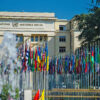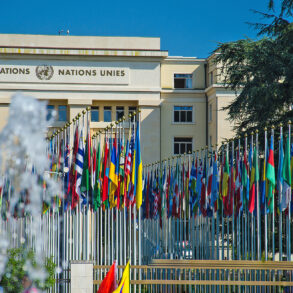The latest IPCC report stated that we must rapidly reduce greenhouse gas emissions. Otherwise, the planet is moving towards hostile conditions. One of the main cuts is to be made in energy. Burning and industrial processing of fossil fuels and raw materials accounts for 78 percent of the total. This makes a rapid shift to clean energy more urgent than ever. By David Firnando Silalahi
(IPS) – Countries around the world are engaging in initiatives to develop and implement alternative energy sources. Among the latest steps is the involvement of religious leaders to accelerate the move away from fossil fuels. In 2018, Pope Francis called on individuals and businesses to reduce their consumption and find ways to use green sources.
In Morocco, solar panels were installed on the roofs of more than 100 mosques as part of the Green Mosques initiative. Imams and female clergy have also been trained to raise awareness about sustainable energy. After Morocco, Indonesia (the country with the largest Muslim population in the world) has shown how the government is working with religious organisations to promote green energy.
The island nation faces massive challenges in its efforts to develop renewable energy. So far, the country is very dependent on fossil fuels. Most recently, the government engaged with leaders and communities to help the country reach a goal of zero emissions by 2060.
Protection of nature and the environment are among Islamic principles. Therefore, the use of clean energy is ethical and moral. Keeping this principle in mind, the Ministry of Environment and Forestry signed a partnership agreement with Nahdlatul Ulama (NU, the largest Muslim organisation in the country) last year to improve environmental management and sustainable forestry. This partnership is crucial as it has over 28,800 Islamic boarding schools with millions of Muslim students affiliated to it.
This decision is a strategic move. A 2020 study makes it clear that Indonesia‘s citizens have the highest level of trust in data coming from religious figures. The government can cooperate with them because the pressing nature of clean energy is part of their beliefs.
Religious leaders can explain in their speeches and lectures why Indonesians need to reduce carbon emissions to protect the earth. They can encourage people to use more renewable energy such as solar energy on the roofs of their houses. The government can make similar agreements with other religious organisations such as the Muhammadiyah, the country’s second largest organisation, and the Indonesian Council of Scholars to accelerate the achievement of their climate goals. The conditions for networked cooperation are good in this case. Both organisations have already started grassroots ecological movements such as Ecomasjid or “Green Mosque” of the Scholars Council.
The government can equip religious figures including mosque leaders with knowledge about clean energy. With the right understanding, they can educate and inspire people about clean energy. Indonesia could learn from Morocco’s experience.











